UN WEBTV
http://webtv.un.org/
PBS WATCH ALL ASSEMBLY SPEECHES FROM SEPT 24-OCT 1,2013
http://www.pbs.org/newshour/rundown/2013/09/2013-un-general-assembly.html
GENERAL ASSEMBLY LINKS
http://gadebate.un.org/
http://www.un.org/en/ga/about/index.shtml
http://www.un.org/en/ga/
UN CHARTER AND RESOLUTIONS
http://www.un.org/en/documents/charter/
http://www.un.org/documents/resga.htm
BAN KI-MOON ON THE ISRAEL PALESTINIAN PEACE PROCESS-SEPT 24,2013
http://www.un.org/sg/statements/
I welcome the re-engagement of Israelis and Palestinians in direct negotiations, and the bold diplomacy that made this possible. If we are serious about achieving a two-state solution, then we must recognize that the window is closing fast.I urge the parties to show leadership – and a sense of the long-term interests of their peoples and the region. I am going to convene the Quartet principals meeting later this week here in New York to lend our strong support to this ongoing Middle East peace process.Looking beyond the Middle East and North Africa, I see Africans writing a new narrative of dynamism, democracy and sustained, impressive economic growth.http://www.un.org/sg/priorities/index.shtml
NEW YORK CITY -- President Barack Obama kicks off the 68th session of the U.N. General Assembly here with a speech Tuesday morning that emphasizes the continuing challenges in the Middle East and North Africa, and the need for the international community to stand up to the use of chemical weapons by Syrian President Bashar al-Assad, the White House said.The Syrian civil war, which has raged for two-and-a-half years, has left more than 100,000 people dead. A chemical attack near Damascus on Aug. 21 prompted the United States to threaten limited military action, and then work out an agreement with Russia on a plan to contain and destroy Syria's chemical weapon stockpiles. (Read more about the agreement.).The United States is seeking a U.N. Security Council resolution that says the Assad regime must undertake a process to get rid of its chemical weapons that's verifiable and transparent, said deputy national security adviser Ben Rhodes in a conference call with reporters on Friday. The resolution would be pursued under Chapter 7 of the U.N. charter. Since Russia opposes the use of military action in Syria, the resolution would say if Syria doesn't comply, there will be consequences, and it allows allies to pursue the option of sanctions against the Assad regime, Rhodes said.Iranian President Hassan Rouhani, who also speaks Tuesday, is making his debut trip to the United Nations. President Obama has exchanged letters with Rouhani but has no plans to meet with him either formally or informally at the assembly, said Rhodes. Rouhani has made overtures about engaging on the nuclear issue, but Rhodes said the Obama administration has always made judgments about the Iranian regime based on actions, not words.A nuclear-armed Iran is unacceptable and all options are on the table to prevent it, Rhodes reiterated. But he said the president feels there is still room to negotiate a solution, and that the P5+1 -- a group of nations composed of the five permanent members of the U.N. Security Council plus Germany -- is the best forum to do it.President Obama plans to meet with Palestinian Authority President Mahmoud Abbas, which would be their first meeting since Palestinians and Israelis returned to direct negotiations. Mr. Obama will host Israeli Prime Minister Benjamin Netanyahu at the White House on Sept. 30.President Obama's other one-on-one meetings at the U.N. General Assembly are with Lebanese President Michel Suleiman to discuss refugee challenges brought by the fighting in Syria, and with Nigerian President Goodluck Jonathan about regional security, the Boko Haram insurgency and the potential for investment in Nigeria, said Rhodes.
OBAMA VIDEO OF HIS SPEECH AT U.N
http://www.youtube.com/watch?v=fLrPyaXYLhI
FULL TRANSCRIPT OF OBAMA SPEECH AT NEW YORK GENERAL ASSEMBLY SEPT 24,13
http://www.washingtonpost.com/politics/transcript-president-obamas-speech-at-the-un-general-assembly/2013/09/24/64d5b386-2522-11e3-ad0d-b7c8d2a594b9_story.html
HIGHLIGHTS I PICKED OUT FROM OBAMAS SPEECH
PRESIDENT OBAMA: Mr. President, Mr. Secretary General, fellow delegates, ladies and gentlemen, each year we come together to reaffirm the founding vision of this institution. For most of recorded history, individual aspirations were subject to the whims of tyrants and empires and divisions of race and religion and tribe were settled through the sword and the clash of armies.The idea that nations and peoples could come together in peace to solve their disputes and advance a common prosperity seemed unimaginable. It took the awful carnage of two world wars to shift our thinking.The leaders who built the United Nations were not naive. They did not think this body could eradicate all wars. But in the wake of millions dead and (inaudible) rubble, and with the development of nuclear weapons that could annihilate a planet, they understand that humanity could not survive the course it was on.And so, they gave us this institution, believing that it could allow us to resolve conflicts, enforce rules of behavior and build habits of cooperation that would grow stronger over time.For decades, the United Nations has, in fact, made a difference from helping to eradicate disease to educating children to brokering peace. But like every generation of leaders, we face new and profound challenges, and this body continues to be tested. The question is whether we possess the wisdom and the courage as nation states and members of an international community to squarely meet those challenges, whether the United Nations can meet the test of our time.And for much of my tenure as president, some of our most urgent challenges have involved around an increasingly integrated global economy and our efforts to recover from the worst economic crisis of our lifetime.
Today, I want to outline where the United States of America stands on these issues.With respect to Syria, we believe that as a starting point the international community must enforce the ban on chemical weapons.The ban against the use of chemical weapons, even in war, has been agreed to by 98 percent of humanity. It is strengthened by the searing memories of soldiers suffocated in the trenches, Jews slaughtered in gas chambers,Iranians poisoned in the many tens of thousands.The Syrian government took a first step by giving an accounting of its stockpiles. Now, there must be a strong Security Council resolution to verify that the Assad regime is keeping its commitments. And there must be consequences if they fail to do so. If we cannot agree even on this, then it will show that the United Nations is incapable of enforcing the most basic of international laws.On the other hand, if we succeed, it will send a powerful message that the use of chemical weapons has no place in the 21st century and that this body means what it says. Our agreement on chemical weapons should energize a larger diplomatic effort to reach a political settlement within Syria.I do not believe that military action by those within Syria or by external powers can achieve a lasting peace. Nor do I believe that America or any nation should determine who will lead Syria. That is for the Syrian people to decide.
It’s time for Russia and Iran to realize that insisting on Assad’s rule will lead directly to the outcome that they fear: An increasingly violent space for extremists to operate.
So let me take this opportunity to outline what has been U.S. policy toward the Middle East and North Africa and what will be my policy during the remainder of my presidents (sic). The United States of America is prepared to use all elements of our power, including military force, to secure our core interests in the region. We will confront external aggression against our allies and partners, as we did in the Gulf War.
We will ensure the free flow of energy from the region to the world. Although America is steadily reducing our own dependence on imported oil, the world still depends on the region’s energy supply and a severe disruption could destabilize the entire global economy.We will dismantle terrorist networks that threaten our people. Wherever possible, we will build the capacity of our partners, respect the sovereignty of nations, and work to address the root causes of terror. But when it’s necessary, defend the United States against terrorist attack, we will take direct action.And finally, we will not tolerate the development or use of weapons of mass destruction. Just as we consider the use of chemical weapons in Syria to be a threat to our own national security, we reject the development of nuclear weapons that could trigger a nuclear arms race in the region and undermine the global nonproliferation regime.Since I took office, I’ve made it clear in letters to the supreme leader in Iran and more recently to President Rouhani that America prefers to resolve our concerns over Iran’s nuclear program peacefully -- although we are determined to prevent Iran from developing a nuclear weapon.We are not seeking regime change, and we respect the right of the Iranian people to access peaceful nuclear energy.And this not -- is not simply an issue between the United States and Iran. The world has seen Iran evade its responsibilities in the past and has an abiding interest in making sure that Iran meets its obligations in the future.But I want to be clear. We are encouraged that President Rouhani received from the Iranian people a mandate to pursue a more moderate course, and given President Rouhani’s stated commitment to reach an agreement, I am directing John Kerry to pursue this effort with the Iranian government in close cooperation with the European Union, the United Kingdom, France, Germany, Russia and China.
We are also determined the resolve a conflict that goes back even further than our differences with Iran, and that is the conflict between Palestinians and Israelis.I’ve made it clear that the United States will never compromise our commitment to Israel’s security, nor our support for its existence as a Jewish state.Earlier this year, in Jerusalem, I was inspired by young Israelis who stood up for the belief that peace was necessary, just and possible. And I believe there’s a growing recognition within Israel that the occupation of the West Bank is tearing at the democratic fabric of the Jewish state.But, the children of Israel have the right to live in a world where the nations assembled in this body fully recognize their country, and where we unequivocally reject those who fire rockets at their homes or incite others to hate them.Likewise, the United States remains committed to the belief that the Palestinian people have a right to live with security and dignity in their own sovereign state.On the same trip, I had the opportunity to meet with young Palestinians in Ramallah, whose ambition and incredible potential are matched by the pain they feel and having no firm place in the community of nations.They are understandably cynical that real progress will ever be made, and they’re frustrated by their families enduring the daily indignity of occupation. But they, too, recognize that two states is the only real path to peace. Because just as the Palestinian people must not be displaced, the state of Israel is here to stay.
So the time is now ripe for the entire international community to get behind the pursuit of peace. Already, Israeli and Palestinian leaders have demonstrated a willingness to take significant political risks. President Abbas has put aside efforts to shortcut the pursuit of peace and come to the negotiating table. Prime Minister Netanyahu has released Palestinian prisoners and reaffirmed his commitment to a Palestinian state. Current talks are focused on final status issues of borders and security, refugees and Jerusalem.So now the rest of us must be willing to take risks as well. Friends of Israel, including the United States, must recognize that Israel’s security as a Jewish and democratic state depend on the realization of a Palestinian state. And we should say so clearly. Arab states and those who support the Palestinians must recognize that stability will only be served through a two-state solution and a secure Israel.All of us must recognize that peace will be a powerful tool to defeat extremists throughout the region and embolden those who are prepared to build a better future. And, moreover, ties of trade and commerce between Israelis and Arabs could be an engine of growth and opportunity at a time when too many young people in the region are languishing without work.
So let’s emerge from the familiar corners of blame and prejudice; let’s support Israeli and Palestinian leaders who are prepared to walk the difficult road to peace.Now, real breakthroughs on these two issues -- Iran’s nuclear program and Israeli-Palestinian peace -- would have a profound and positive impact on the entire Middle East and North Africa.But the current convulsions arising out of the Arab Spring remind us that a just and lasting peace cannot be measured only agreements between nations; it must also be measured by our ability to resolve conflict and promote justice within nations. And by that measure, it’s clear that all of us have a lot more work to do.When peaceful transitions began in Tunisia and Egypt, the entire world was filled with hope. And although the United States, like others, was struck by the speed of transition, and although we did not, and, in fact, could not dictate events, we chose to support those who called for change.

BENJAMIN NETANYAHU DRAWS RED-LINE TO IRAN LAST YEAR 2012 AT THE U.N
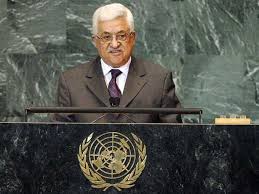
ABBAS ISRAELS SO CALLED PEACE PARTNER
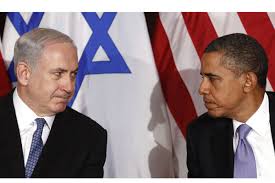
NETANYAHU TALKES WITH OBABA ABOUT PEACE AND IRAN
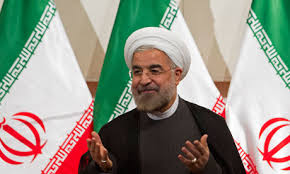
IRANS LEADER

THE U.N LOGO

ONE WORLD-ONE GOVERNMENT IS THE UNITED NATIONS AIM
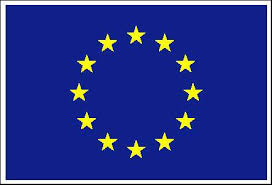 EU WORLD LEADER FLAG
EU WORLD LEADER FLAG
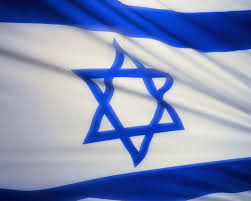 ISRAELI FLAG
ISRAELI FLAG
GOT ALL THESE PICTURES FROM THE INTERNET UNDER THESE
pictures of the u.n/obama
pictures of european union flag and at u.n
pictures of all 193 u.n nation flags
http://webtv.un.org/
PBS WATCH ALL ASSEMBLY SPEECHES FROM SEPT 24-OCT 1,2013
http://www.pbs.org/newshour/rundown/2013/09/2013-un-general-assembly.html
GENERAL ASSEMBLY LINKS
http://gadebate.un.org/
http://www.un.org/en/ga/about/index.shtml
http://www.un.org/en/ga/
UN CHARTER AND RESOLUTIONS
http://www.un.org/en/documents/charter/
http://www.un.org/documents/resga.htm
BAN KI-MOON ON THE ISRAEL PALESTINIAN PEACE PROCESS-SEPT 24,2013
http://www.un.org/sg/statements/
I welcome the re-engagement of Israelis and Palestinians in direct negotiations, and the bold diplomacy that made this possible. If we are serious about achieving a two-state solution, then we must recognize that the window is closing fast.I urge the parties to show leadership – and a sense of the long-term interests of their peoples and the region. I am going to convene the Quartet principals meeting later this week here in New York to lend our strong support to this ongoing Middle East peace process.Looking beyond the Middle East and North Africa, I see Africans writing a new narrative of dynamism, democracy and sustained, impressive economic growth.http://www.un.org/sg/priorities/index.shtml
What to Watch at the 2013 UN General Assembly
By: Larisa Epatko -sept 24,13http://www.pbs.org/newshour/rundown/2013/09/2013-un-general-assembly.htmlNEW YORK CITY -- President Barack Obama kicks off the 68th session of the U.N. General Assembly here with a speech Tuesday morning that emphasizes the continuing challenges in the Middle East and North Africa, and the need for the international community to stand up to the use of chemical weapons by Syrian President Bashar al-Assad, the White House said.The Syrian civil war, which has raged for two-and-a-half years, has left more than 100,000 people dead. A chemical attack near Damascus on Aug. 21 prompted the United States to threaten limited military action, and then work out an agreement with Russia on a plan to contain and destroy Syria's chemical weapon stockpiles. (Read more about the agreement.).The United States is seeking a U.N. Security Council resolution that says the Assad regime must undertake a process to get rid of its chemical weapons that's verifiable and transparent, said deputy national security adviser Ben Rhodes in a conference call with reporters on Friday. The resolution would be pursued under Chapter 7 of the U.N. charter. Since Russia opposes the use of military action in Syria, the resolution would say if Syria doesn't comply, there will be consequences, and it allows allies to pursue the option of sanctions against the Assad regime, Rhodes said.Iranian President Hassan Rouhani, who also speaks Tuesday, is making his debut trip to the United Nations. President Obama has exchanged letters with Rouhani but has no plans to meet with him either formally or informally at the assembly, said Rhodes. Rouhani has made overtures about engaging on the nuclear issue, but Rhodes said the Obama administration has always made judgments about the Iranian regime based on actions, not words.A nuclear-armed Iran is unacceptable and all options are on the table to prevent it, Rhodes reiterated. But he said the president feels there is still room to negotiate a solution, and that the P5+1 -- a group of nations composed of the five permanent members of the U.N. Security Council plus Germany -- is the best forum to do it.President Obama plans to meet with Palestinian Authority President Mahmoud Abbas, which would be their first meeting since Palestinians and Israelis returned to direct negotiations. Mr. Obama will host Israeli Prime Minister Benjamin Netanyahu at the White House on Sept. 30.President Obama's other one-on-one meetings at the U.N. General Assembly are with Lebanese President Michel Suleiman to discuss refugee challenges brought by the fighting in Syria, and with Nigerian President Goodluck Jonathan about regional security, the Boko Haram insurgency and the potential for investment in Nigeria, said Rhodes.
OBAMA VIDEO OF HIS SPEECH AT U.N
http://www.youtube.com/watch?v=fLrPyaXYLhI
FULL TRANSCRIPT OF OBAMA SPEECH AT NEW YORK GENERAL ASSEMBLY SEPT 24,13
http://www.washingtonpost.com/politics/transcript-president-obamas-speech-at-the-un-general-assembly/2013/09/24/64d5b386-2522-11e3-ad0d-b7c8d2a594b9_story.html
HIGHLIGHTS I PICKED OUT FROM OBAMAS SPEECH
PRESIDENT OBAMA: Mr. President, Mr. Secretary General, fellow delegates, ladies and gentlemen, each year we come together to reaffirm the founding vision of this institution. For most of recorded history, individual aspirations were subject to the whims of tyrants and empires and divisions of race and religion and tribe were settled through the sword and the clash of armies.The idea that nations and peoples could come together in peace to solve their disputes and advance a common prosperity seemed unimaginable. It took the awful carnage of two world wars to shift our thinking.The leaders who built the United Nations were not naive. They did not think this body could eradicate all wars. But in the wake of millions dead and (inaudible) rubble, and with the development of nuclear weapons that could annihilate a planet, they understand that humanity could not survive the course it was on.And so, they gave us this institution, believing that it could allow us to resolve conflicts, enforce rules of behavior and build habits of cooperation that would grow stronger over time.For decades, the United Nations has, in fact, made a difference from helping to eradicate disease to educating children to brokering peace. But like every generation of leaders, we face new and profound challenges, and this body continues to be tested. The question is whether we possess the wisdom and the courage as nation states and members of an international community to squarely meet those challenges, whether the United Nations can meet the test of our time.And for much of my tenure as president, some of our most urgent challenges have involved around an increasingly integrated global economy and our efforts to recover from the worst economic crisis of our lifetime.
Today, I want to outline where the United States of America stands on these issues.With respect to Syria, we believe that as a starting point the international community must enforce the ban on chemical weapons.The ban against the use of chemical weapons, even in war, has been agreed to by 98 percent of humanity. It is strengthened by the searing memories of soldiers suffocated in the trenches, Jews slaughtered in gas chambers,Iranians poisoned in the many tens of thousands.The Syrian government took a first step by giving an accounting of its stockpiles. Now, there must be a strong Security Council resolution to verify that the Assad regime is keeping its commitments. And there must be consequences if they fail to do so. If we cannot agree even on this, then it will show that the United Nations is incapable of enforcing the most basic of international laws.On the other hand, if we succeed, it will send a powerful message that the use of chemical weapons has no place in the 21st century and that this body means what it says. Our agreement on chemical weapons should energize a larger diplomatic effort to reach a political settlement within Syria.I do not believe that military action by those within Syria or by external powers can achieve a lasting peace. Nor do I believe that America or any nation should determine who will lead Syria. That is for the Syrian people to decide.
It’s time for Russia and Iran to realize that insisting on Assad’s rule will lead directly to the outcome that they fear: An increasingly violent space for extremists to operate.
So let me take this opportunity to outline what has been U.S. policy toward the Middle East and North Africa and what will be my policy during the remainder of my presidents (sic). The United States of America is prepared to use all elements of our power, including military force, to secure our core interests in the region. We will confront external aggression against our allies and partners, as we did in the Gulf War.
We will ensure the free flow of energy from the region to the world. Although America is steadily reducing our own dependence on imported oil, the world still depends on the region’s energy supply and a severe disruption could destabilize the entire global economy.We will dismantle terrorist networks that threaten our people. Wherever possible, we will build the capacity of our partners, respect the sovereignty of nations, and work to address the root causes of terror. But when it’s necessary, defend the United States against terrorist attack, we will take direct action.And finally, we will not tolerate the development or use of weapons of mass destruction. Just as we consider the use of chemical weapons in Syria to be a threat to our own national security, we reject the development of nuclear weapons that could trigger a nuclear arms race in the region and undermine the global nonproliferation regime.Since I took office, I’ve made it clear in letters to the supreme leader in Iran and more recently to President Rouhani that America prefers to resolve our concerns over Iran’s nuclear program peacefully -- although we are determined to prevent Iran from developing a nuclear weapon.We are not seeking regime change, and we respect the right of the Iranian people to access peaceful nuclear energy.And this not -- is not simply an issue between the United States and Iran. The world has seen Iran evade its responsibilities in the past and has an abiding interest in making sure that Iran meets its obligations in the future.But I want to be clear. We are encouraged that President Rouhani received from the Iranian people a mandate to pursue a more moderate course, and given President Rouhani’s stated commitment to reach an agreement, I am directing John Kerry to pursue this effort with the Iranian government in close cooperation with the European Union, the United Kingdom, France, Germany, Russia and China.
We are also determined the resolve a conflict that goes back even further than our differences with Iran, and that is the conflict between Palestinians and Israelis.I’ve made it clear that the United States will never compromise our commitment to Israel’s security, nor our support for its existence as a Jewish state.Earlier this year, in Jerusalem, I was inspired by young Israelis who stood up for the belief that peace was necessary, just and possible. And I believe there’s a growing recognition within Israel that the occupation of the West Bank is tearing at the democratic fabric of the Jewish state.But, the children of Israel have the right to live in a world where the nations assembled in this body fully recognize their country, and where we unequivocally reject those who fire rockets at their homes or incite others to hate them.Likewise, the United States remains committed to the belief that the Palestinian people have a right to live with security and dignity in their own sovereign state.On the same trip, I had the opportunity to meet with young Palestinians in Ramallah, whose ambition and incredible potential are matched by the pain they feel and having no firm place in the community of nations.They are understandably cynical that real progress will ever be made, and they’re frustrated by their families enduring the daily indignity of occupation. But they, too, recognize that two states is the only real path to peace. Because just as the Palestinian people must not be displaced, the state of Israel is here to stay.
So the time is now ripe for the entire international community to get behind the pursuit of peace. Already, Israeli and Palestinian leaders have demonstrated a willingness to take significant political risks. President Abbas has put aside efforts to shortcut the pursuit of peace and come to the negotiating table. Prime Minister Netanyahu has released Palestinian prisoners and reaffirmed his commitment to a Palestinian state. Current talks are focused on final status issues of borders and security, refugees and Jerusalem.So now the rest of us must be willing to take risks as well. Friends of Israel, including the United States, must recognize that Israel’s security as a Jewish and democratic state depend on the realization of a Palestinian state. And we should say so clearly. Arab states and those who support the Palestinians must recognize that stability will only be served through a two-state solution and a secure Israel.All of us must recognize that peace will be a powerful tool to defeat extremists throughout the region and embolden those who are prepared to build a better future. And, moreover, ties of trade and commerce between Israelis and Arabs could be an engine of growth and opportunity at a time when too many young people in the region are languishing without work.
So let’s emerge from the familiar corners of blame and prejudice; let’s support Israeli and Palestinian leaders who are prepared to walk the difficult road to peace.Now, real breakthroughs on these two issues -- Iran’s nuclear program and Israeli-Palestinian peace -- would have a profound and positive impact on the entire Middle East and North Africa.But the current convulsions arising out of the Arab Spring remind us that a just and lasting peace cannot be measured only agreements between nations; it must also be measured by our ability to resolve conflict and promote justice within nations. And by that measure, it’s clear that all of us have a lot more work to do.When peaceful transitions began in Tunisia and Egypt, the entire world was filled with hope. And although the United States, like others, was struck by the speed of transition, and although we did not, and, in fact, could not dictate events, we chose to support those who called for change.
BENJAMIN NETANYAHU DRAWS RED-LINE TO IRAN LAST YEAR 2012 AT THE U.N
ABBAS ISRAELS SO CALLED PEACE PARTNER
NETANYAHU TALKES WITH OBABA ABOUT PEACE AND IRAN
IRANS LEADER
THE U.N LOGO
ONE WORLD-ONE GOVERNMENT IS THE UNITED NATIONS AIM
GOT ALL THESE PICTURES FROM THE INTERNET UNDER THESE
pictures of the u.n/obama
pictures of european union flag and at u.n
pictures of all 193 u.n nation flags